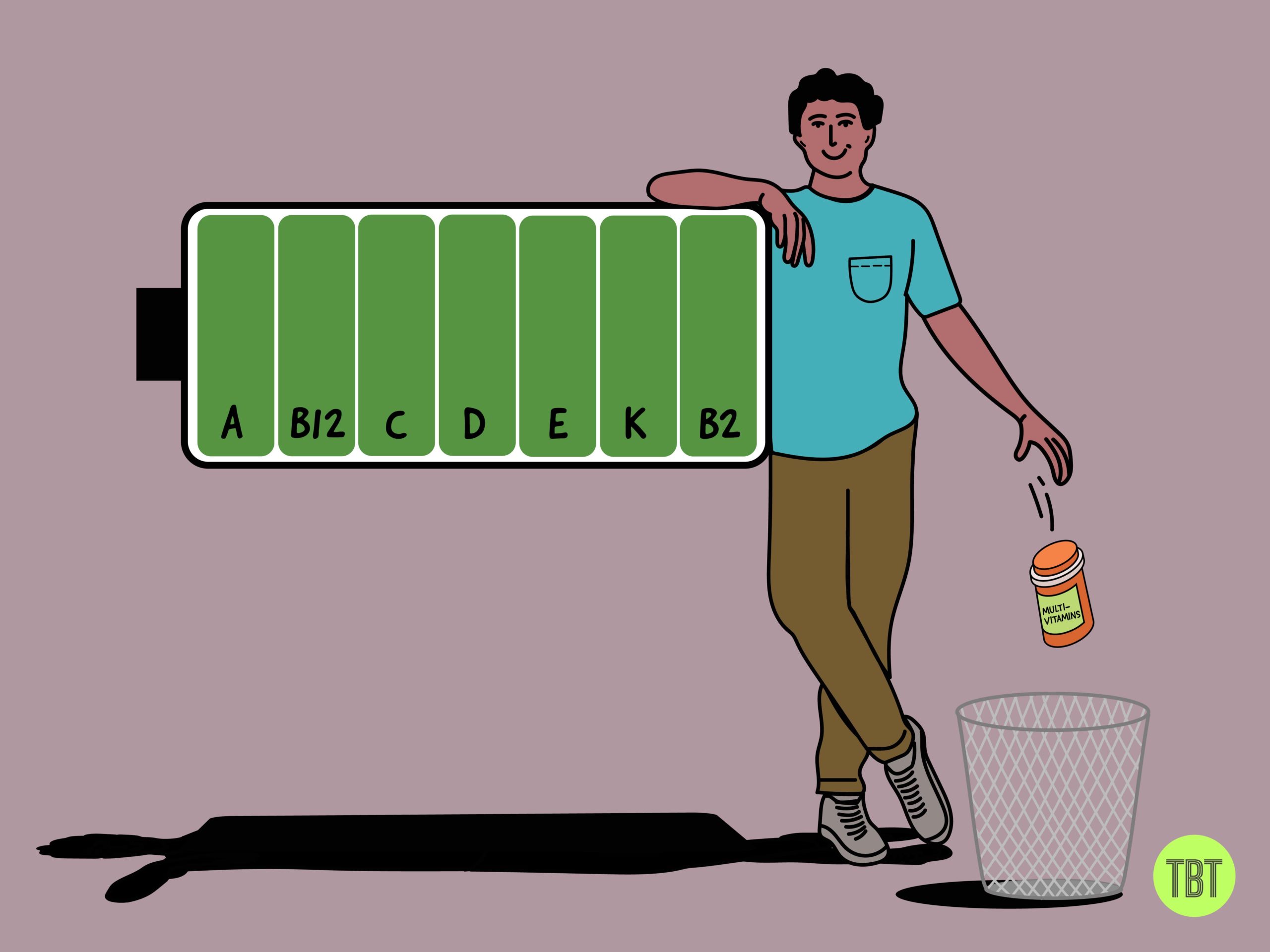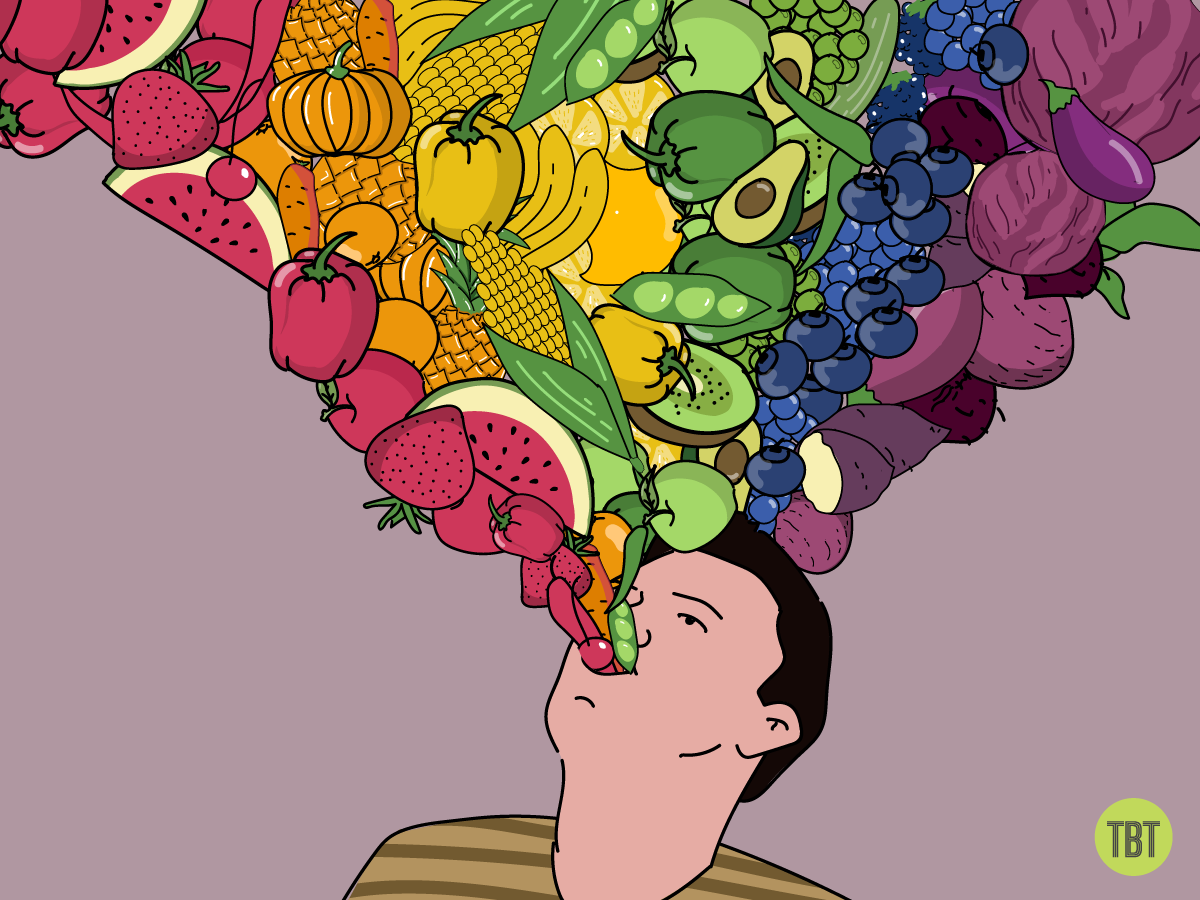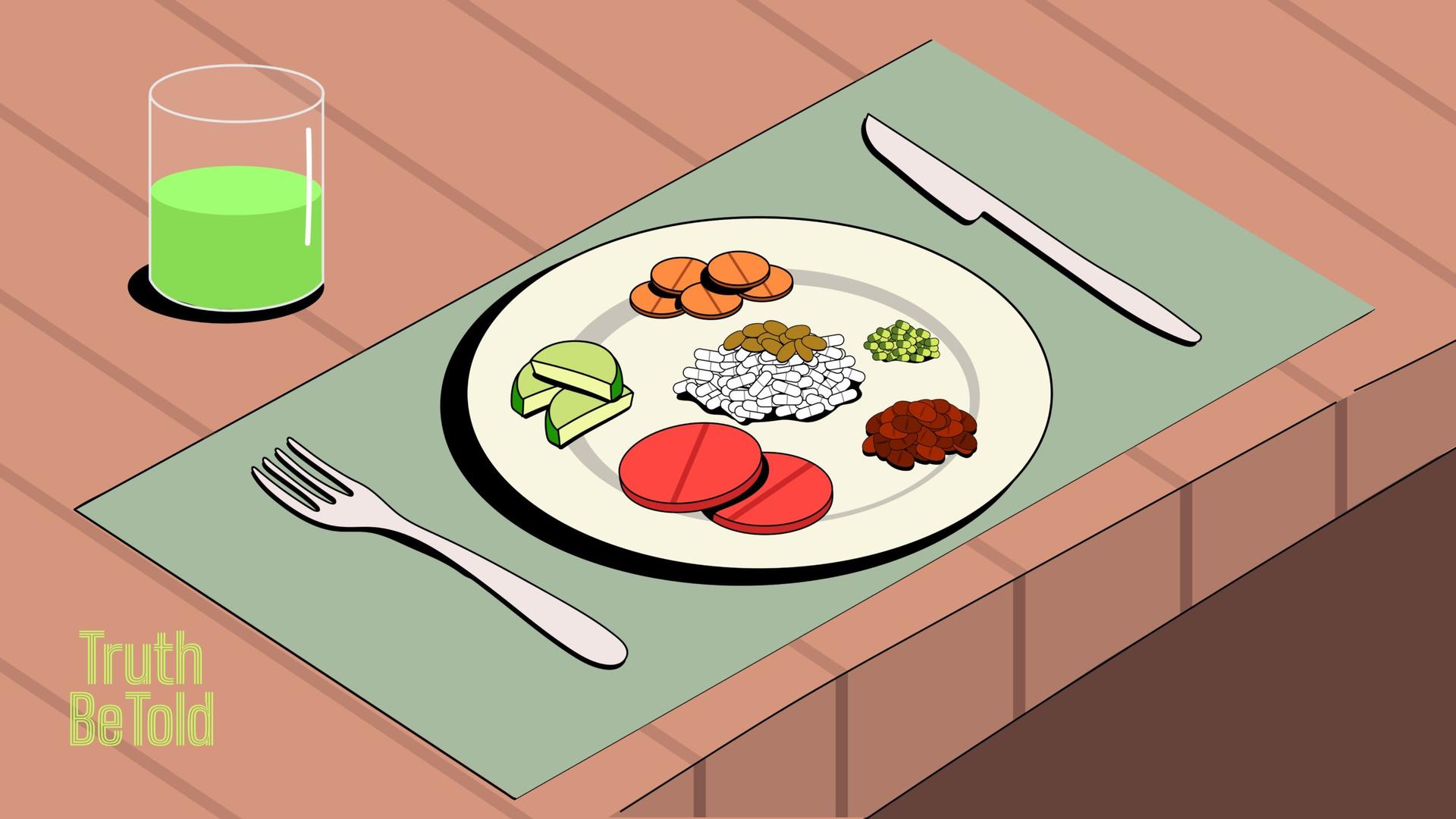Are multivitamin tablets good for you?
The most trustworthy source of food and
fitness journalism in the country.
Editor’s note: Hello, everyone! We’re kicking off the year with an incisive explainer on multivitamin supplements by Shantanu Kishwar, a freelance writer. Follow him on Twitter and subscribe to Multitudes, his newsletter.
Please read carefully before purchasing those pills. (There is a lot of hype around supplements in general, and we want to explore the prominent ones in our newsletter. Your ideas are welcome.)
Also: Going forward, I’ll unabashedly keep asking you to share TBT to your friends. Algorithms aren’t working in our favour. We’re kinda stuck trying to figure out this growth thing. So…help needed! (And yeah, only help out if you think our newsletter is worth it. If you don’t, that’s even more reason to drop me a line and tell me what we can do better. Hit me up directly at samarth@thewholetruthfoods.com.)
After over two decades of neglect, I began taking my health seriously in recent years. I started unscientifically, guided by a basic understanding of exercise (anything that raised my heart rate) and a better diet (primarily reducing sugar and processed foods). Progressively, I worked on my sleep and accepted the need for strength training.
Now, my focus has turned to a deeper understanding of nutrition. Having finished my first packet of protein powder, I’ve been wondering about vitamin supplements, especially because reputable health gurus like Andrew Huberman endorse products like AG1 which are rich in various vitamins.
What I’ve found has been rather instructive — and saved me quite a bit of money — and that’s the crux of what we’re diving into today.
A disclaimer: the world of supplements is vast and varied. For the sake of precision and brevity, this discussion will centre specifically on multivitamins.
What exactly are vitamins?
According to ‘The Body’ by Bill Bryson, our knowledge of vitamins is just over a century old and still somewhat incomplete. Originally called “vital amines” — hence the term ‘vitamins’ — these are essential chemical compounds necessary for normal bodily functions.
There are thirteen essential vitamins: A, C, D, E, K, and the B complex consisting of eight types (B1, B2, B3, B5, B6, B7, B9, B12). Some of these, like vitamin D, cannot be manufactured in sufficient quantities by our bodies, while others, like vitamin B12, cannot be produced at all, necessitating their intake through diet, sunlight exposure, or fortified foods.
The absence of these vitamins can have serious consequences. For instance, scurvy, caused by vitamin C deficiency, is historically significant for reportedly claiming over two million sailors’ lives, surpassing deaths caused by storms, shipwrecks, combat, and other diseases.
Unfortunately, the science of vitamins isn’t perfect. There’s disagreement on recommended daily allowances (RDA). For example, the UK’s National Health Service recommends 3-4 milligrams of Vitamin E per day, in contrast to the 14-15 milligrams suggested by Harvard’s TH Chan School of Public Health
There’s also a lot of myth-making about the benefits of vitamins, even among the smartest people on Earth. Linus Pauling, a two-time Nobel laureate, famously consumed 40,000 mg of vitamin C daily, believing it fought colds and cancer, despite a lack of scientific evidence supporting these claims.
Vitamin B is complex, but sharing this article is not😝
Alright, vitamins are important, but where did the multivitamin craze start?
In the 1990s, the USA was going through a fitness revolution. People were ditching fatty foods, lacing up their exercise shoes, and adopting healthier lifestyles. Companies quickly seized this opportunity, aggressively marketing multivitamins as a panacea for various health issues.
As this Johnny Harris video tells us, they matched their marketing fervour with lobbying efforts that ensured poor regulation. This approach allowed them to make bold health claims without the need for clinical trials or solid evidence, as would be required for conventional medications. This mix of health fanaticism, lax oversight, and hefty marketing budgets turned the industry into a behemoth, now valued at over $50 billion in the USA.
Though India’s not yet as big a market, it’s getting there. With more attention (and money) devoted to health and wellness after COVID-19, the supplement or ‘nutraceutical’ industry is projected to grow 20% year-on-year and become worth $18 billion by 2025.
Multivitamins vs specific vitamins?
It’s tempting to believe that pills or powders could give your body all the nutrition it needs, sparing you the need to manually ensure a balanced diet. The truth, as you might expect, is far from this.
Vitamins, nutritionally classified as ‘micronutrients’, are required by our bodies in small or ‘micro’ amounts. People should be able to get the required amounts of these from their diet alone, especially in a day and age where more and more people have access to sufficient food sources.
The key thing is: If you’re already meeting your daily vitamin requirements through food, then multivitamin supplements won’t help, and research bears this out.

Supplements are unnecessary if you get enough vitamins from your food.
Studies from the Annals of Internal Medicine, the Journal of the American College of Cardiology, the Journal of the American Medical Association, and the BMJ have consistently shown that multivitamins do not improve health outcomes in individuals without specific vitamin deficiencies.
Still, many view multivitamins as harmless, often describing them as leading to ‘expensive urine’, meaning your body excretes excess amounts without any health benefits.
This is particularly true for water-soluble vitamins like the B complex and Vitamin C, which are flushed out through the urine if taken in excess.
However, caution is needed with fat-soluble vitamins such as A, E, D, and K. These can accumulate in the body, and excessive intake can result in ‘hypervitaminosis’, a condition that may cause health issues like liver and kidney damage, bone abnormalities, and other complications.
Take a chill-pill (maybe not) 😝
So are all vitamin supplements a complete sham?
While it’s easy to dismiss all supplements given the lack of benefits for those without deficiencies, the situation is more nuanced.
Here’s where we need to get specific in our language, and therefore our choices. The studies I cited above said that there were no benefits of supplement consumption for people without specific deficiencies.
However, the reality of these deficiencies and their consequences is undeniable. Not all deficiency effects are as dramatic as scurvy, which leads to teeth loss, internal haemorrhaging, easy bruising, and impaired wound healing.
For example, deficiencies in vitamins B12 and D can manifest as fatigue and brain fog, potentially escalating to severe symptoms like depression and nerve damage. Often, these symptoms are mistakenly attributed to other issues like poor sleep or work-life imbalance, as was the case with me.
If you are deficient in a particular vitamin, then supplementing that specific vitamin might be necessary, rather than opting for broad-spectrum multivitamins. However, even in cases of deficiency, it’s important to consider whether dietary changes or lifestyle adjustments could be effective before turning to supplements.
So when are supplements actually useful?
Dr. Andrew Hubermann categorically states that supplements should be considered only after establishing a strong foundation of healthy behaviours and nutrition. These behaviours include actions and habits aimed at improving mental and physical health, such as ensuring adequate exposure to sunlight to stimulate vitamin D production.
In terms of diet, relying solely on supplements is not advisable; a balanced and varied diet is essential. The ‘rainbow diet’, which involves eating fruits and vegetables of various colours, is often recommended to ensure a comprehensive intake of vitamins. However, it’s important to note that even this diet might not provide sufficient levels of certain vitamins like B12 or D.

Eat the rainbow
The way you cook your food also plays a role in vitamin retention. A 2017 study notes that cooking can alter the vitamin content of foods, depending on the type of vegetable and cooking method. Therefore, if you’re deficient in certain vitamins, consider adjusting your diet to include more foods rich in those nutrients, and be mindful of how you cook them. (More details in this New York Times piece.)
If, after implementing these dietary and behavioural changes, you still face vitamin deficiencies, then turning to supplements might be necessary. This is particularly true for individuals with specific dietary restrictions or lifestyles, such as vegans or vegetarians who lack major sources of B12 found in meat, eggs, and dairy.
Additionally, people living in regions with less sunlight, like many Indians who have higher levels of melanin, may require vitamin D supplements due to reduced natural vitamin production in the body.
How do you determine which supplements you need?
Understanding your specific needs is essential for maintaining your health. Routine blood tests are a key tool in this process, as they can reveal your vitamin levels. (If you don’t remember the last time you got them checked, consider this a gentle reminder.)
If your levels are fine, make this a part of an annual health check up, unless you start experiencing symptoms that might indicate a deficiency.
In cases where your tests reveal deficiencies, it’s important to work closely with your physician. Together, you can develop a plan that addresses these deficiencies through diet, lifestyle changes, and, if necessary, supplements. Avoid the trap of self-prescribing multivitamins with the hope that they will cover your needs. Each vitamin deficiency requires a specific approach, including proper dosages and a tailored supplementation schedule.
Plan regular follow-up tests with your doctor. These are vital for monitoring your progress and making any necessary adjustments to your supplement intake. This collaborative and monitored approach is key to ensuring that your supplement intake is precisely what your body needs — no more, no less.
Your friends need to know that the only vitamin they lack is U 🙈
